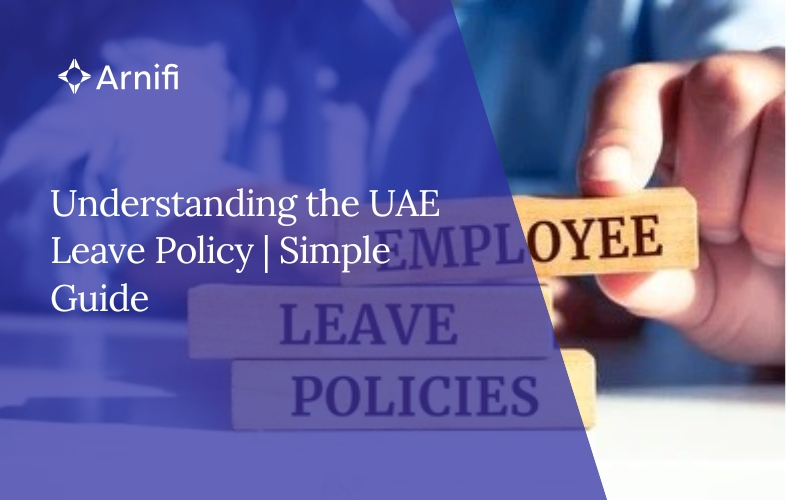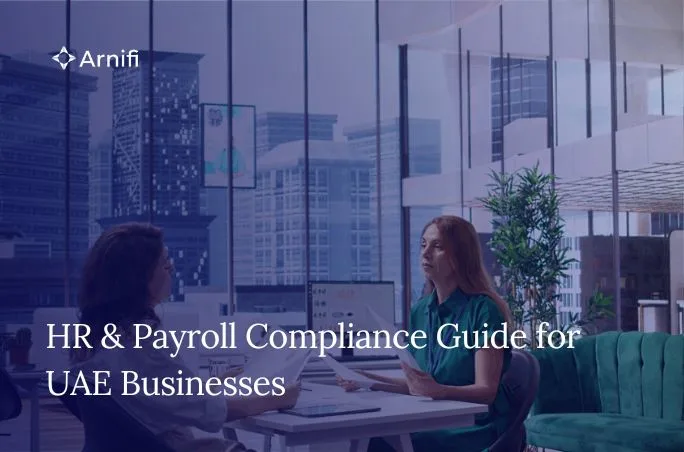Understanding the UAE Leave Policy | Simple Guide
by Shethana Jul 02, 2025  6 MIN READ
6 MIN READ

When navigating employment in the UAE, understanding leave entitlements is essential for both employers and employees. The UAE leave policy is grounded in federal labor law, yet flexible enough for companies to tailor leave packages to organizational needs. Whether you’re a part-time associate, a seasoned full-timer, or an Emirati national, here’s everything you should know.
Annual Leave
Entitlement
Under Federal Decree‑Law No. 33 of 2021, once you complete six months of service, you’re entitled to 2 days of paid leave per month. After a full year, this changes to 30 calendar days of annual leave.
Administration
Annual leave can usually be planned in advance. Companies must notify employees of approved leave at least 30 days beforehand. Unused leave may be carried over, encashed upon termination, or carried into the next leave year, subject to internal policy.
Part-Time Eligibility
Part-timers are also entitled to annual leave prorated based on hours worked, as defined in their employment contract.
Weekly Rest Day
Employees are guaranteed at least one paid rest day each week (most commonly Friday in the private sector). Some firms offer two days off weekly, depending on working patterns and collective agreements.
Public Holidays
The UAE official portal confirms that employees must be granted paid leave for all official public holidays recognized by the UAE government, such as Eid, National Day, Islamic New Year, etc., in accordance with Article 28. If an employee works on a holiday, the employer must offer either:
- A substitute rest day, or
- Pay at least 150% of the basic salary in addition to the regular wage.
Sick Leave
Entitlement
After completing probation, private‑sector employees are entitled to up to 90 days of medical leave per year, which can be taken continuously or intermittently.
Pay Structure
- First 15 days: paid at 100% salary
- Next 30 days: paid at 50% salary
- Remaining 45 days: unpaid
Probationary employees may receive sick leave at the employer’s discretion, but usually without pay. Misconduct-related illness voids entitlement.
Extended Leave
For severe illness, extensions beyond 90 days may be granted based on employer discretion and medical documentation. However, once extended leave is exhausted, termination may follow with proper legal processes.
Maternity Leave
Eligibility & Duration
Female employees are entitled to 60 days of maternity leave, which they can take up to 30 days before the expected delivery date.
Pay Breakdown
- 45 days at full salary
- 15 days at half pay
Additional unpaid sick leave up to 45 days is allowed for pregnancy-related complications, with a medical certificate. If the newborn is ill or has a disability, mothers may get another 30 paid days plus 30 unpaid days, subject to documentation.
Workday Flexibility
After returning, mothers can avail of two one-hour breaks per day for six months to breastfeed, as mandated by law. Employers may not terminate a woman while on maternity leave.
Parental (Paternity) Leave
In a progressive move, the UAE grants five paid working days of paternity leave, which must be taken within six months of childbirth. Either parent may use this entitlement.
Bereavement OR Compassionate Leave
Employees are usually granted compassionate leave in the event of a family member’s death. While UAE law doesn’t specify the duration, companies often allow between three to five days for bereavement.
Hajj / Pilgrimage Leave
Muslim employees performing Hajj or Umrah may receive unpaid leave, typically up to 30 days, once in their employment.
Study Leave
As of recent labour law changes, employees with two years of continuous service are eligible for up to 10 days of paid study leave per year, provided it’s for exams at accredited institutions in the UAE.
Sabbatical Leave for National Service
Emirati citizens in private sector roles are entitled to paid sabbatical leave for serving in the national military service, as outlined by Federal Law No. 6 of 2014.
Unpaid Leave & Special Circumstances
Employers may allow additional unpaid leave for personal reasons (e.g. marriage, relocation), depending on company policy. These are discretionary and typically require HR approval.
How do Companies Structure Leave Policies?
Leave policies in UAE organisations often go beyond the minimum legal requirements to build a competitive and supportive workplace culture. Key considerations include:
Leave Accrual Models
- Monthly accrual (e.g., 2 days/month) smoothens the balance and prevents year-end leave piling
- Annual allocation grants the full entitlement yearly
Carry-Over and Encashment
Unused leave may be carried forward, subject to caps, or encashed at year-end/termination based on policy.
Approval Process
Organisations define leave application/approval workflows, usually via HR systems or managers. Emergency leave should be logged promptly to avoid payroll discrepancies.
Why a Well-Crafted UAE Leave Policy Matters?
- Legal compliance: Adherence to Federal Law avoids penalties and labour disputes
- Employee well‑being: Generous leave supports mental and physical health
- Talent attraction: Enhanced leave options (e.g., study leave, paternity leave) help companies stand out
- Corporate reputation: Equitable leave practices promote a positive employer brand
- Operational clarity: Defined rules around accruals, approvals, and carry‑overs reduce HR issues
Sample Leave Policy Checklist
| Leave Type | Entitlement | Key Notes |
| Annual Leave | 2 days/month → 30 days/year | Notify 30 days ahead, carry-over capped, encashable |
| Weekly Rest | 1 day/week (Friday) | More possible by company discretion |
| Public Holidays | As per the UAE Government calendar | Compensated 150% if worked, or a substitute holiday |
| Sick Leave | Up to 90 days/year (15 full, 30 half, 45 unpaid) | Doc required within 3 days; no payout during probation |
| Maternity Leave | 60 days (45 full, 15 half); extra unpaid/paid if needed | Takeable 30 days prior birth; +breaks post-return |
| Paternity Leave | 5 days paid within 6 months of birth | Either parent eligible |
| Bereavement Leave | Typically 3–5 days (company policy) | Compassionate leave for immediate family |
| Hajj/Pilgrimage Leave | ~30 days unpaid, once during employment | For Hajj pilgrimage |
| Study Leave | 10 days/year (post 2-year service) | For accredited exam preparation |
| Sabbatical Leave | Paid, for Emirati nationals fulfilling military service | As per Federal Law for Emirati private-sector workers |
| Unpaid Leave | Company-defined | For special circumstances, subject to approval |
UAE Leave Policy | Best Practices for Employers
- Automate tracking: Use HR/leave management tools for transparency
- Align with legal updates: e.g., parenthood, study leave introduced since 2023
- Flexible design: Allow crossover between leave types only when justified
- Fairness and inclusion: Offer equitable leave for part-timers and varied staff types
- Regular reviews: Update policy to reflect business growth and legal changes
- Clear documentation: Communicate policy, entitlements, and processes clearly to staff
Navigating Your UAE Leave Policy | Tips for Employees
- Plan early – especially for annual leave and maternity/paternity leave
- Know your rights – in case of a public holiday, work or long-term illness
- Keep records, especially for sick leave medical certificates
- Review contract – some companies may offer extras beyond the legal minimum
- Clarify carry-over rules, and check how leave is encashed
- Communicate delays – especially in emergencies, using official system
Key Takeaways
The UAE leave policy blends statutory entitlements with flexibility for employers to offer richer benefits. Mandatory cover, such as annual leave, sick leave, maternity leave, and public holidays, forms the backbone. Meanwhile, the addition of paternity leave, study leave, Hajj leave, bereavement leave, and sabbatical leave for Emiratis enriches the workplace environment.
To build a strong, compliant, and people-centred organisation, your leave policy should:
- Mirror federal law
- Be clearly documented
- Have transparent procedures
- Be communicated effectively
Crafting a thoughtful UAE leave policy isn’t just a legal check‑box; it reflects your company’s values, respect for employee well‑being, and ability to attract and retain top talent. Get your free consultation on the EOR services from Arnifi
Top UAE Packages

Related Articles
Top UAE Packages



